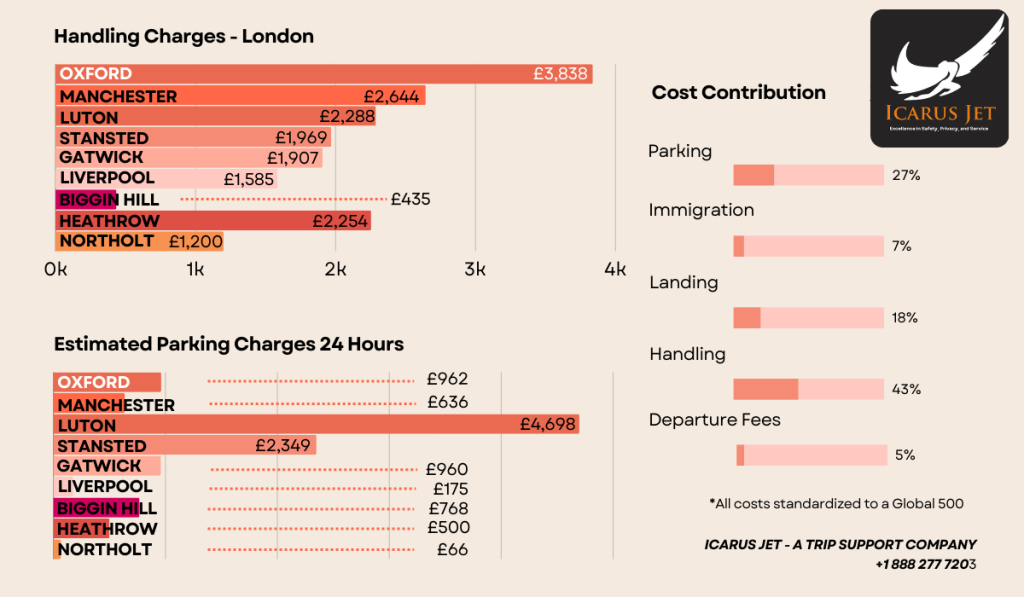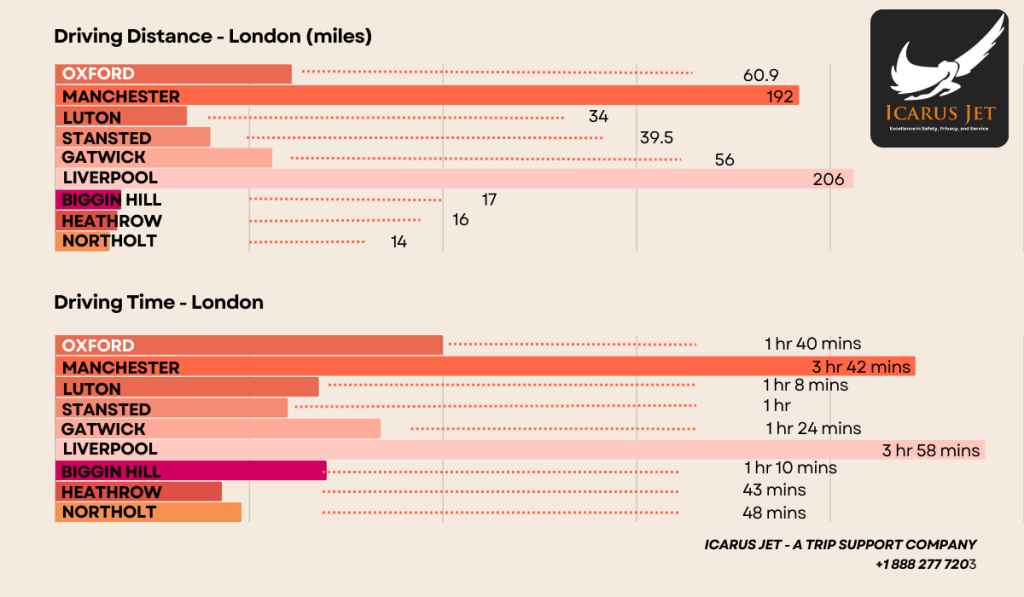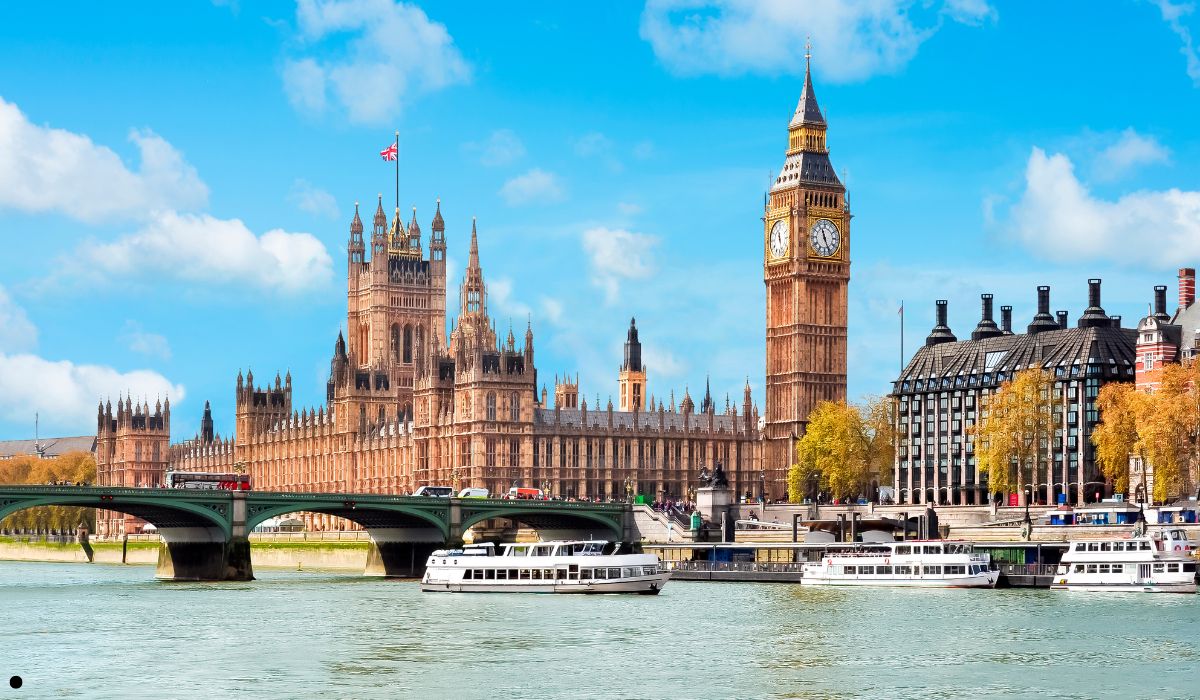Recent Regulatory Changes: GAR & ETA
Starting April 6, the UK has revamped its General Aviation Report (GAR) submission process for international flights. The GAR form is required for both private jet arrivals and departures now. Operators must submit flight and passenger details online between two and 48 hours before departure via the GAR web service or approved third-party apps. Non-compliance can lead to fines of up to £10,000, a steep increase from previous regulations.
Once a GAR is submitted, it should remain the same, even if departure times vary. This is the responsibility of UK Customs. These rules apply to all international private jet flights arriving or departing the UK, including those within the Common Travel Area (Ireland, the Isle of Man, and the Channel Islands). Submissions can be made through the government’s free online portal, or approved apps like Rocket Route and OnlineGAR. Compliance with these new requirements is essential to avoid significant fines and ensure smooth UK flight support.
The UK’s Electronic Travel Authorization (ETA) program is also expanding. Soon, it will include all nationalities that do not require a visa for stays up to six months. ETA responses typically take three business days and are valid for two years. This change aims to streamline the entry process and enhance border security. Business aircraft operators must know these updates to avoid fines and entry issues.
Recently, the Department of Transport has abruptly reintroduced the 100ml liquid restriction for all carry-on bags at six regional airports in the UK: EGNT/Newcastle, EGNM/Leeds, EGLC/London City, EGPD/Aberdeen, EGMC/Southend, and EGNV/Teesside. This change is reportedly causing significant holdups for travelers in June 2024.
Parking, Handling, Landing Costs
Costs for handling and parking a private jet in London vary significantly depending on the airport and the aircraft’s Maximum Take-Off Weight (MTOW). Seasonal variations and specific peak periods also affect these charges.


Parking is free for the first hour at these airports, with subsequent charges based on MTOW. Note that parking and handling fees can fluctuate based on the season, with high demand and super peak days incurring higher costs. But on average, handling costs amount to the largest portion of the total cost at 43%, followed by parking at 27%, landing fees at 18%, immigration at 7%, and departure fees at 5%.
Airport Operations
Oxford Airport (EGTK): The airport is in Oxfordshire, England. It has limited operational hours from 0630 to 2200 LT, with the control tower open until 2230 LT. The facility offers full-service FBO (Fixed Base Operator) services including handling, fuel, and maintenance. Runway length: 1,439 meters (4,721 feet). Also, the location provides easy access to Oxford City and its renowned academic institutions. Notable for its proximity to major universities and research centers in Oxfordshire. Handling charges for a Global 5000 jet: £3,838. Estimated 24-hour parking charges: £962.
London Stansted Airport (EGSS): The airfield is situated in Stansted Mountfitchet, England, approximately 48 km (30 miles) northeast of Central London. It operates 24/7. While it has only 1 runway, the airport offers extensive facilities for private jets, including FBO services, customs, and immigration. Runway length: 3,048 meters (10,000 feet). The area notably provides convenient access to Central London via express train services and major road networks. Handling fees for a Global 5000 aircraft: £1,969. Estimated parking charges per night are £2,349
London Luton Airport (EGGW): It was built in Bedfordshire, England, approximately 45 km (28 miles) northwest of Central London. The airport is a convenient choice of entry as it operates 24/7 and is one of the busiest private jet airports for UK flight support. Runway length: 2,162 meters (7,093 feet). Its proximity to London and major motorways allows easy access to the city and surrounding areas. Handling fees for a Global 5000 plane: £2,288. The estimated parking charge per night is £4,698.
Liverpool John Lennon Airport (EGGP): Approximately 12 km (7.5 miles) southeast of Liverpool’s city center lies this airport, strategically positioned near the heart of the city. While it operates with restrictions, it is fully capable of offering handling services for private jets, complete with FBO facilities. Its runway spans 2,286 meters (7,500 feet) in length. Handling charges for a Global 5000 aircraft amount to £1,585, with approximate nightly parking charges totaling £175.
London Gatwick Airport (EGKK): With 2 operational runways and its location in West Sussex, the airport is about 45 km (28 miles) south of Central London. Of course, it operates 24/7 and is one of the UK flight support’s busiest international London airports. You can easily find FBO services and dedicated facilities for private jet operations here. Runway length: 3,316 meters (10,879 feet). It is also well connected to London and SE by train, bus, and road networks. Handling charges for a Global 5000 private aircraft: £1,907. Approximate 24-hour parking charges: £960.
Manchester Airport (EGCC): Situated in Ringway, Greater Manchester, England, approximately 13.9 km (8.6 miles) southwest of Manchester city center. It operates 24/7 with 2 runways. The facility offers handling services for private jets, including FBO facilities. Runway length: 3,048 meters (10,000 feet). Well-connected to Manchester city center and the wider North West region via road and rail links. Handling charges for a Global 5000 aircraft: £2,644. Approximate 24-hour parking charges: £636.
Operators planning flights to London should stay informed about regulatory changes and be prepared for varying costs based on airport choice, season, and specific peak days. Book Icarus Jet today for your trip support – the airport permits, flight plans, fuel, landing, ground handling, parking, and even the last-mile hotel accommodations. We offer UK flight support at affordable prices, to inquire more – email fltops@icarusjet.com.




